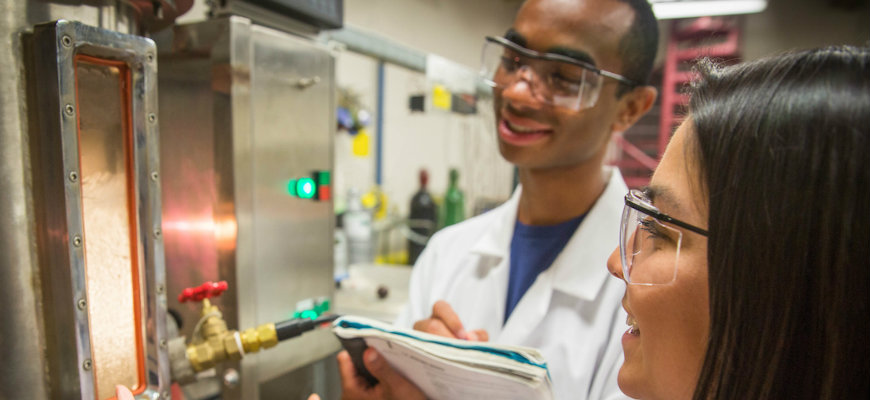
Solutions for a Better Future
Posted on: February 13, 2019; Updated on: February 13, 2019
By Hossein Haj-Hariri
Our world needs solutions to a host of grand problems: access to clean water, affordable and clean energy, better medicine, personalized learning, restoring and improving urban infrastructure, cybersecurity, and prevention of nuclear terror. Engineering and computing will continue to play central roles in addressing these challenges. However, these are complex and systemic problems, and need what the National Academies have termed ‘convergent’ solutions, or sometimes referred to as trans-disciplinary solutions. Simply put, no single discipline can address any of these challenges, nor is it possible to develop solutions while remaining isolated in an office or a lab. While the elements of the solution will most certainly be developed by researchers who have depth in their discipline, there needs to be constant incorporation of these elemental solutions into the overall convergent solution.
The first step towards any such solution starts by assessing the need. To avoid unintended consequences, that assessment requires—in addition to deep command of technical fundamentals—an understanding of our society, an appreciation for the finite and connected nature of our planet, empathy for others, deep conviction to the paramount station of ethics, and genuine respect for the dignity of all people. If not heeded, there will be costs, both immediate and long term.
While accrediting bodies ensure exposure to ethics and the role of technology in society, the level of coverage is understandably utilitarian. It is imperative that our engineering or computing education be as trans-disciplinary as possible. Given a choice between a third additional required technical course in a sequence, or a free elective left to our students to choose, we should always choose the latter, especially in a university as comprehensive as ours, and with the high quality of students such as ours.
We should let our students drink form the proverbial fire hose. The time spent on campus is a special time, when the only expectation is to immerse oneself in the process of learning. And what a joy it is to do so while having full access to the experts who have devoted their careers to each of the topics that interest us.
As a student who is in “grade 50” this year, I would like to assure all students from personal experience that you will be surprised by your real interests if you do indeed commit to expanding your horizons during your time here. I remember the exciting trepidation as a freshman during the dark pre-online ages, when I was given the massive bulletin by my advisor of course offerings and told to pick any eight humanities courses I wanted. And no further guidance! My plan had been to become a civil engineer, and return to my country to become rich. Then I took philosophy, history of scientific thought, political science, philosophy of science, and marched through Russell and Whitehead’s Principia Mathematica, and was introduced to other triumphs of human mind. Though I’m not a rich civil engineer, I like to think that I turned out better for that experience.
So, as an active advisor, I always pushed my advisees to stretch their boundaries. I hope you will too. Our Carolina Core is a great start. But it too only scratches the surface of what is available at South Carolina. Venture deeper. You will be able to contribute better solutions, and address some of the grand challenges that are ahead of us. While facing challenges more complex and grand than ever before, I remain convinced that the broadly educated graduates of our universities will continue the tradition of engineering a future that is better than today.